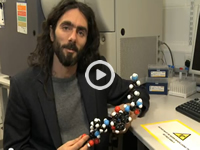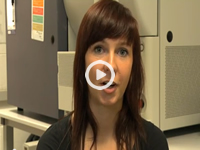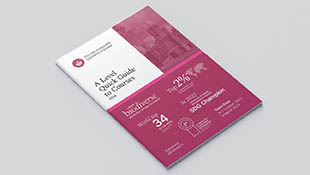-
Courses

Courses
Choosing a course is one of the most important decisions you'll ever make! View our courses and see what our students and lecturers have to say about the courses you are interested in at the links below.
-
University Life

University Life
Each year more than 4,000 choose University of Galway as their University of choice. Find out what life at University of Galway is all about here.
-
About University of Galway

About University of Galway
Since 1845, University of Galway has been sharing the highest quality teaching and research with Ireland and the world. Find out what makes our University so special – from our distinguished history to the latest news and campus developments.
-
Colleges & Schools

Colleges & Schools
University of Galway has earned international recognition as a research-led university with a commitment to top quality teaching across a range of key areas of expertise.
-
Research & Innovation

Research & Innovation
University of Galway’s vibrant research community take on some of the most pressing challenges of our times.
-
Business & Industry

Guiding Breakthrough Research at University of Galway
We explore and facilitate commercial opportunities for the research community at University of Galway, as well as facilitating industry partnership.
-
Alumni & Friends

Alumni & Friends
There are 128,000 University of Galway alumni worldwide. Stay connected to your alumni community! Join our social networks and update your details online.
-
Community Engagement

Community Engagement
At University of Galway, we believe that the best learning takes place when you apply what you learn in a real world context. That's why many of our courses include work placements or community projects.
Bachelor of Science (Biopharmaceutical Chemistry)
Course Overview
Biopharmaceutical Chemistry is the study of biomolecules (such as DNA, proteins and carbohydrates) and their applications as therapeutic medicine. Numerous diseases and medical conditions are caused by the improper function or the absence of a particular biomolecule. For example, some forms of diabetes result from a lack of insulin. The role of the biopharmaceutical chemist is to design and synthesise molecules that can substitute for the missing protein. The replacement molecule is often a modified protein, prepared using chemical and biotechnological methods.
Biopharmaceutical Chemistry is a multidisciplinary subject that combines areas of chemistry and biology. The Biopharmaceutical Chemistry course has a relatively small intake of students and includes ample opportunity for research within projects in years 2 and 4, and a 20-26 week work placement in Year 3.
Applications and Selections
Who Teaches this Course
Requirements and Assessment
Key Facts
Entry Requirements
Minimum Grade H5 in two subjects and passes in four other subjects at O6/H7 level in the Leaving Certificate, including Irish, English, Mathematics, a laboratory science subject (i.e. Chemistry, Physics, Biology, Physics with Chemistry (joint) Computer Science or Agricultural Science) and any two other subjects recognised for entry purposes.
Additional Requirements
Recognition of Prior Learning (RPL)
Duration
4 years
Next start date
September 2024
A Level Grades (2023)
universityofgalway.ie/alevels
Average intake
20
QQI/FET FETAC Entry Routes
Closing Date
NFQ level
Mode of study
ECTS weighting
Award
CAO
GY318
Course code
Course Outline
See course outline for Biopharmaceutical Chemistry here.
YEAR ONE
• Chemistry
• Physics
• Biology
• Plus one of the following:
· Mathematical Studies
· Mathematics
· Computer Science
· Applied Mathematics
YEAR TWO
• Chemistry Pathway
• Biochemistry Pathway
• Computers and Chemical Research (project and transferable skills)
• Fundamental Concepts in Pharmacology
• Applied Concepts in Pharmacology
YEAR THREE
• Organic, Inorganic and Physical Chemistry
• Drug Design and Drug Discovery
• Analytical Chemistry and Molecular Structure
• Experimental Chemistry I and II
• Molecular Biology
• Protein Biochemistry
• Human Molecular Genetics
• Validation in the Pharmaceutical and Medical Device Industry
YEAR FOUR
• Analytical and Biophysical Chemistry
• Bioorganic and Bioinorganic Chemistry
• Biopharmaceutical Chemistry and Modern Biotechnologies
• Placement Option
· Biopharmaceutical Chemistry dissertation
· Work placement
• On-Campus Option:
· On-campus project
· Elective modules
Curriculum Information
Curriculum information relates to the current academic year (in most cases).Course and module offerings and details may be subject to change.
Glossary of Terms
- Credits
- You must earn a defined number of credits (aka ECTS) to complete each year of your course. You do this by taking all of its required modules as well as the correct number of optional modules to obtain that year's total number of credits.
- Module
- An examinable portion of a subject or course, for which you attend lectures and/or tutorials and carry out assignments. E.g. Algebra and Calculus could be modules within the subject Mathematics. Each module has a unique module code eg. MA140.
- Subject
- Some courses allow you to choose subjects, where related modules are grouped together. Subjects have their own required number of credits, so you must take all that subject's required modules and may also need to obtain the remainder of the subject's total credits by choosing from its available optional modules.
- Optional
- A module you may choose to study.
- Required
- A module that you must study if you choose this course (or subject).
- Required Core Subject
- A subject you must study because it's integral to that course.
- Semester
- Most courses have 2 semesters (aka terms) per year, so a three-year course will have six semesters in total. For clarity, this page will refer to the first semester of year 2 as 'Semester 3'.
Year 1 (60 Credits)
Optional MA161: Mathematical Studies - 15 Credits - Semester 1Optional CS102: Computer Science - 15 Credits - Semester 1
Optional MP180: Applied Mathematics - 15 Credits - Semester 1
Optional MA180: Mathematics (Honours) - 15 Credits - Semester 1
Required PH101: Physics - 15 Credits - Semester 1
Required BO101: Biology - 15 Credits - Semester 1
Required CH101: Chemistry - 15 Credits - Semester 1
Year 2 (60 Credits)
Required PM208: Fundamental Concepts in Pharmacology - 5 Credits - Semester 3Required PM209: Applied Concepts in Pharmacology - 5 Credits - Semester 3
Required BI208: Protein Structure and Function - 5 Credits - Semester 3
Required BO201: Molecular and Cellular Biology - 5 Credits - Semester 3
Required CH203: Physical Chemistry - 5 Credits - Semester 3
Required CH204: Inorganic Chemistry - 5 Credits - Semester 3
Required CH205: Analytical & Environmental Chemistry - 5 Credits - Semester 4
Required BI206: Gene Technologies and Molecular Medicine - 5 Credits - Semester 4
Required BI207: Metabolism and Cell Signalling - 5 Credits - Semester 4
Required CH202: Organic Chemistry - 5 Credits - Semester 4
Required CH3101: Computers and Chemical Research - 10 Credits - Semester 4
Further Education
In addition to careers in industry, honours graduates will be qualified to pursue higher degrees (PhD research) in a wide range of related disciplines.
Why Choose This Course?
Career Opportunities
The biopharmaceutical industry is an increasingly important player in the Irish economy. Biopharmaceutical companies located in Ireland include Abbott, Amgen, Alexion, Astellas, Bristol-Myers Squibb, Centocor, Eli Lilly, Hollister, Pfizer, Merck, Randox, Regeneron and Sanofi.. These companies need graduates who are trained in chemistry and aspects of biotechnology. The Biopharmaceutical Chemistry degree is tailored to meet the needs of this industry.
Who’s Suited to This Course
Learning Outcomes
Transferable Skills Employers Value
Work Placement
Study Abroad
Related Student Organisations
Course Fees
Fees: EU
Fees: Tuition
Fees: Student Contribution
Fees: Student levy
Fees: Non EU
EU Fees are comprised of Tuition + Student Contribution Charge + Student Levy** €140. **Payable by all students and is not covered by SUSI. Further detail here.
Find out More
Prof Peter Crowley
School of Chemistry
College of Science
T 353 91 492480
E peter.crowley@universityofgalway.ie
www.universityofgalway.ie/chemistry
What Our Students Say

Sabrinna Crowley | BS (Biopharmaceutical Chemistry)
This course, and the industry it was made for, focus on the structure and function of proteins in the body and offers an appreciation for their role in biological systems. With a small class size, you have the opportunity to make life-long friendships and industry contacts which will benefit you both during the course and long after it. The practical aspects give hands on experience using analytical methods, writing reports, and working in a laboratory environment with leading experts in their field. It immerses student in the fundamentals of chemistry and shows their application in both industry and academia. Biopharmaceutical Chemistry offers a 6-month industrial placement in the first semester of fourth year which gives students experience working in industry. Many students are offered a job by the company they do their placement with, and for those who are not or choose to not accept it the networking and experience makes them prime candidates for other positions. Whether you wish to enter the pharmaceutical, biopharmaceutical, or medical device industry, or do a post-grad, this course prepares students to adapt to any path they wish to follow.





















